Hiking around Kazbegi, Georgia (Very large post)
One of my trips while in Georgia was to the mountain town of Kazbegi (now renamed Stepantsminda). It is famous for the Georgian writer Alexander Kazbegi, the Tsminda Sameba church as well as the 5,047 meter (16,558 feet) high Mt. Kazbek. Mt. Kazbek, an extinct volcano, is around 160 kilometers (100 miles) to the south-east from the highest mountain in Europe, the 5,642 meter (18,510 ft) high Mt. Elbrus (located on the Russian side of the Caucasus mountains). The town of Kazbegi is located on the Georgian Military Highway, about 10 kilometers before the Russian border crossing.
The original name of the city was Stepantsminda, it was named after a Georgian Orthodox monk who constructed a hermitage at this location. The semi-current name of the town (Kazbegi) comes from the the great-grandfather of Alexander Kazbegi, Kazibek Chopikashvili. He was charged with collecting tolls for passage through the area in the 18th century. During the 19th century, the Russian Empire expanded in the south Caucasus. The people living in the city (then known as Mtiuleti) allied themselves with other mountain peoples and revolted against the Russians. They demanded that Gabriel Chopikashvili (Kazibeks' son) hand over the resident Russian soldiers, he refused and was promoted to the position of General in the Russian army. Shortly afterwards the town was renamed Kazbegi.
After Georgia became independent following the break up of the Soviet Union, the name of the city changed back to the original name of Stepantsminda. Many people still know it as Kazbegi, so both names are commonly used.
The following pictures were taken through the window of my Marshrutka (minivan/taxi) on the way from Tbilisi to Kazbegi
Roadblock
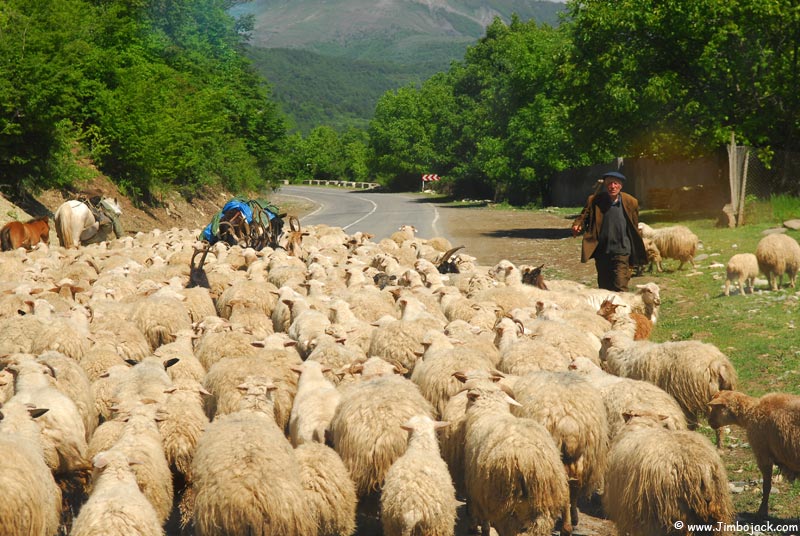
Roadside scenery
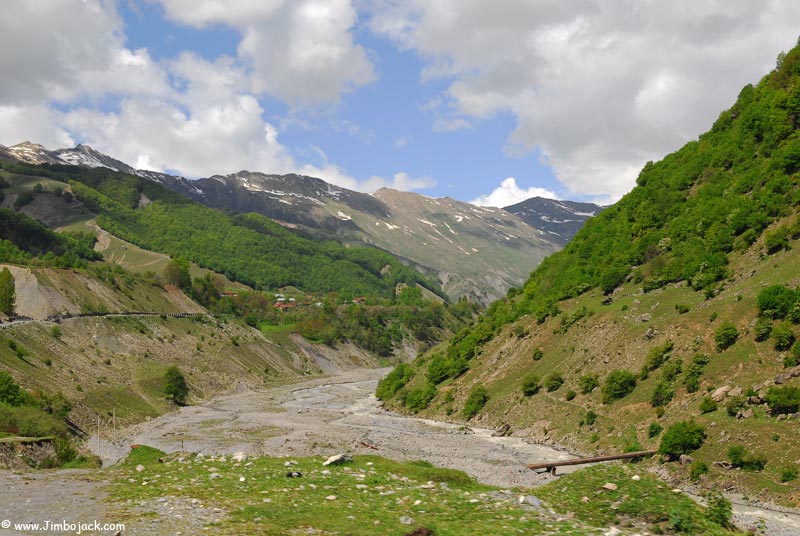
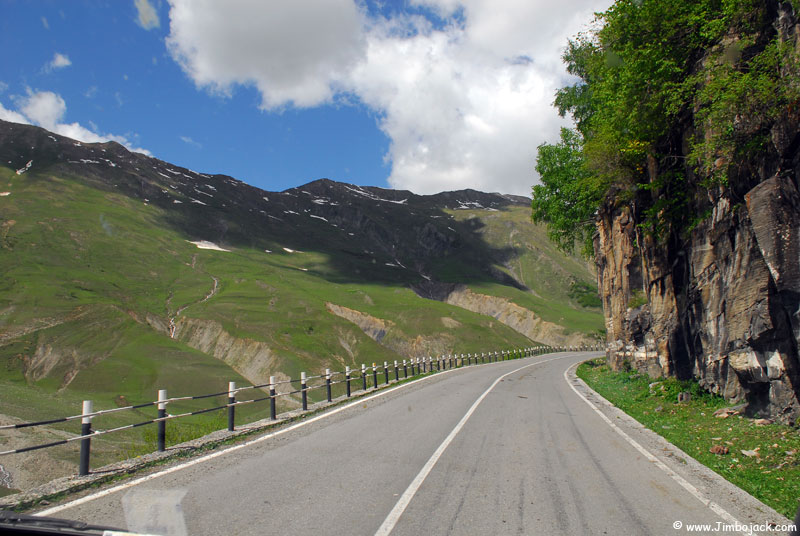
Sheep and cattle grazing on the mountainside, look for the dots
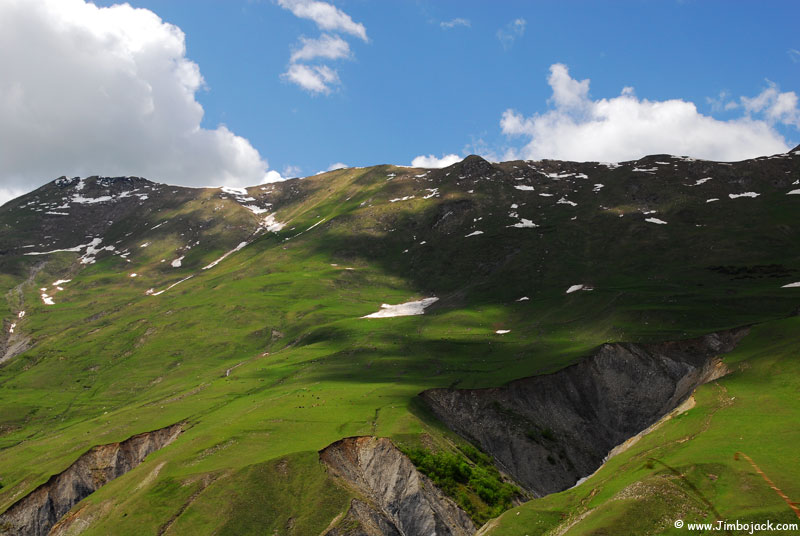
Georgian defense tower, barely visible. More about these towers below
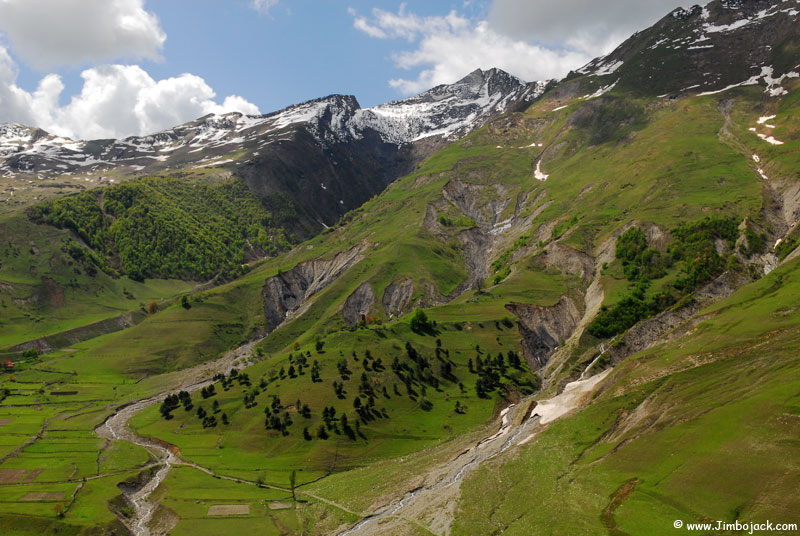
More roadside scenery
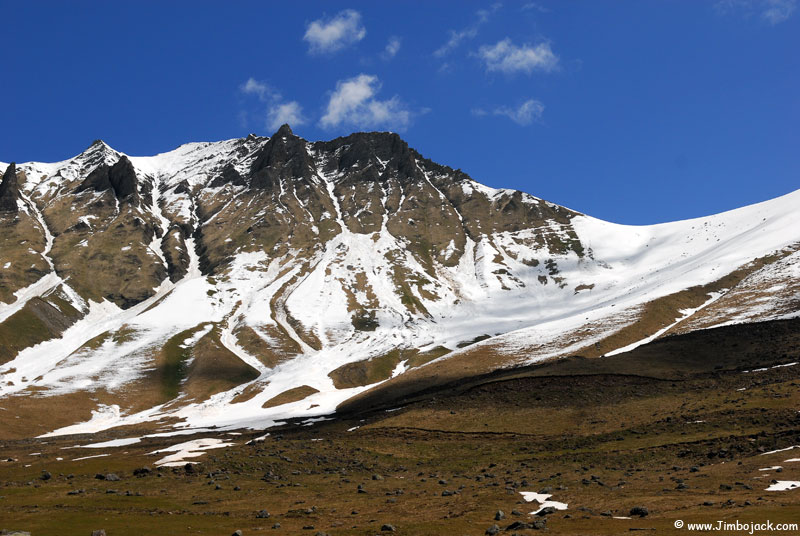
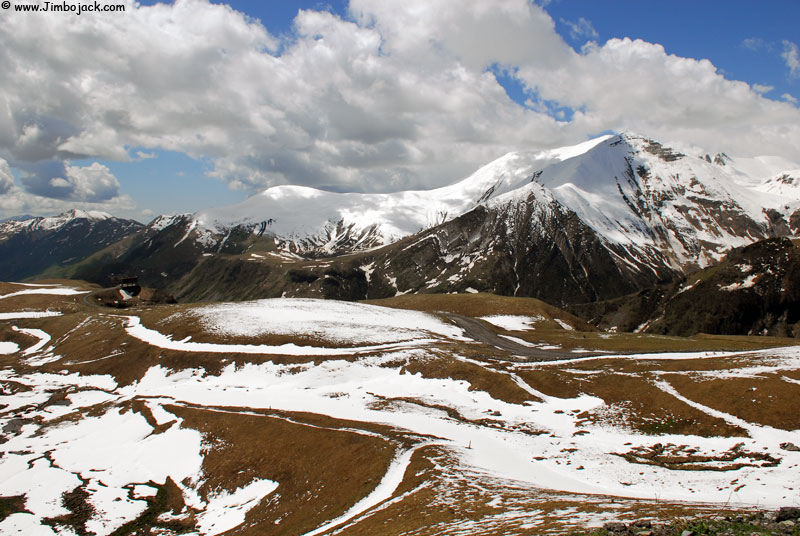
Another defense tower
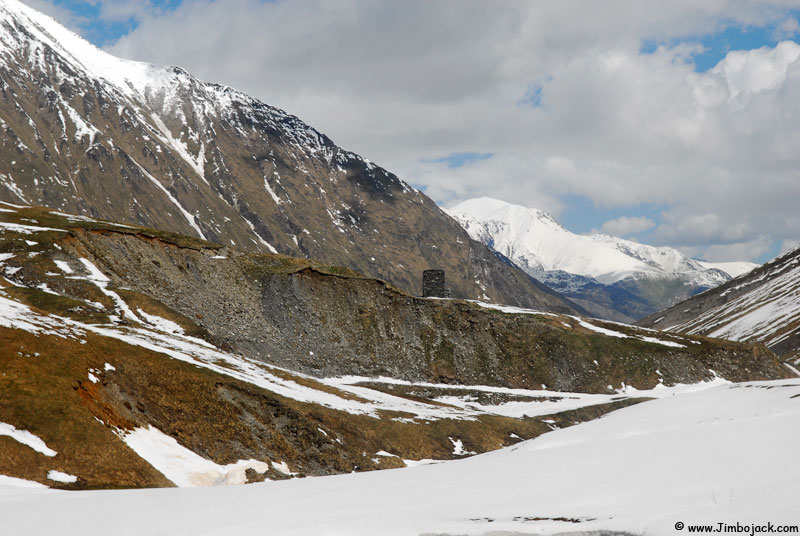
Coming down towards kazbegi
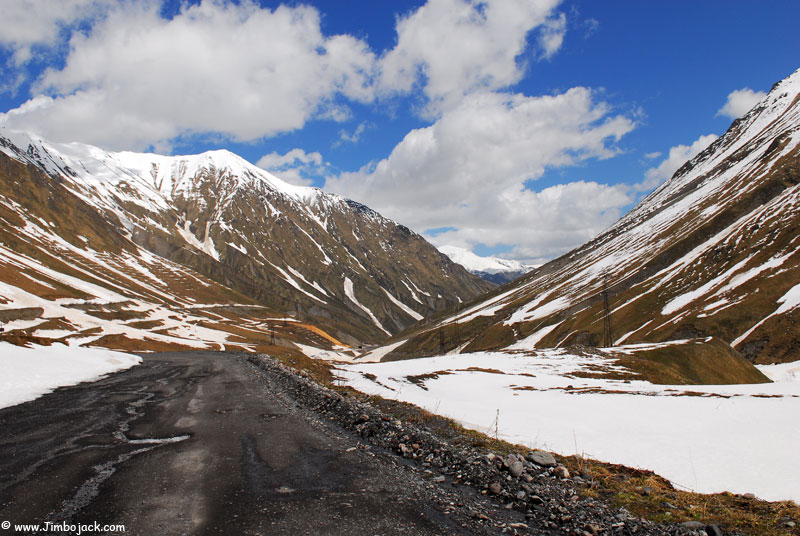
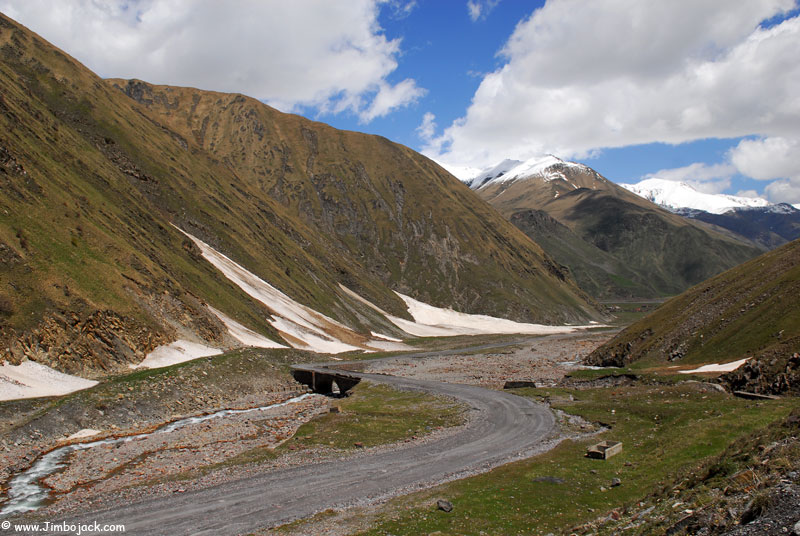
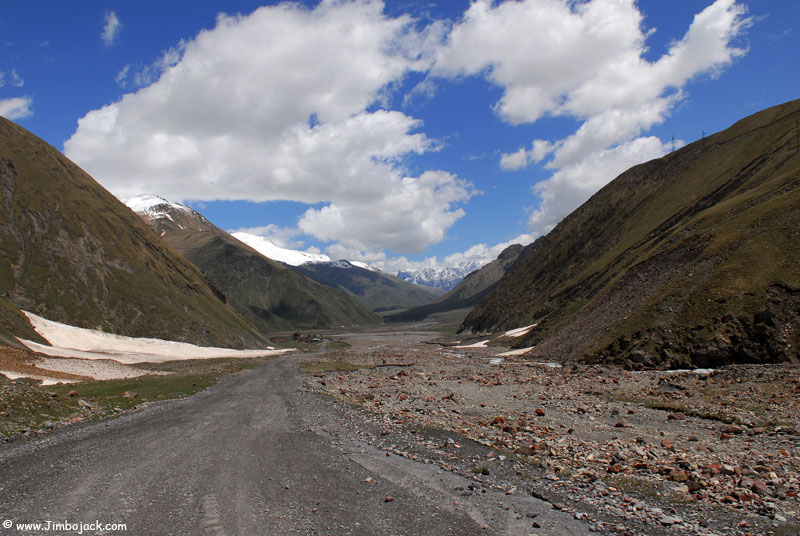
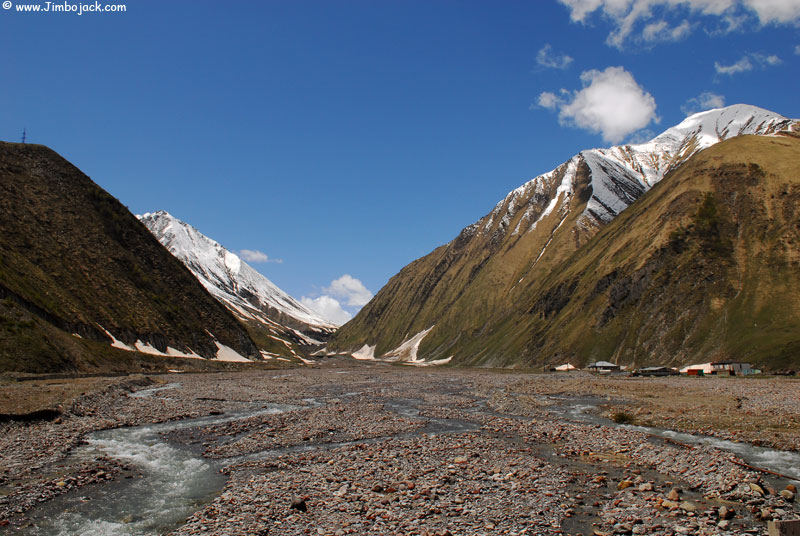
Old Georgian Military highway checkpoint
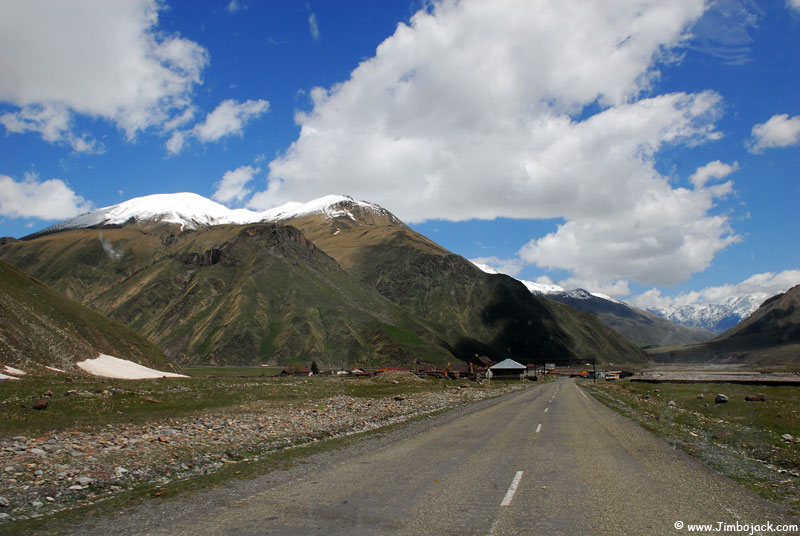
Kazbegi
Once my Marshrutka stopped in the town square, a man approached me and offered me a homestay with his family (A lot of people here do not speak Georgian, they only speak Russian). I understood enough to figure out what he was saying, we agreed on a price (Around $12 a night including VERY good homemade meals prepared by his wife) and off we went in his old Uaz jeep.
My room in the house
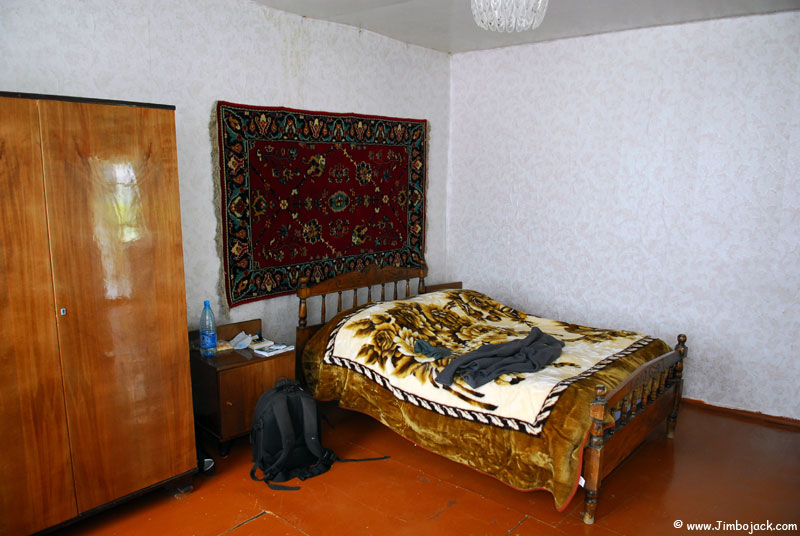
The town of Kazbegi
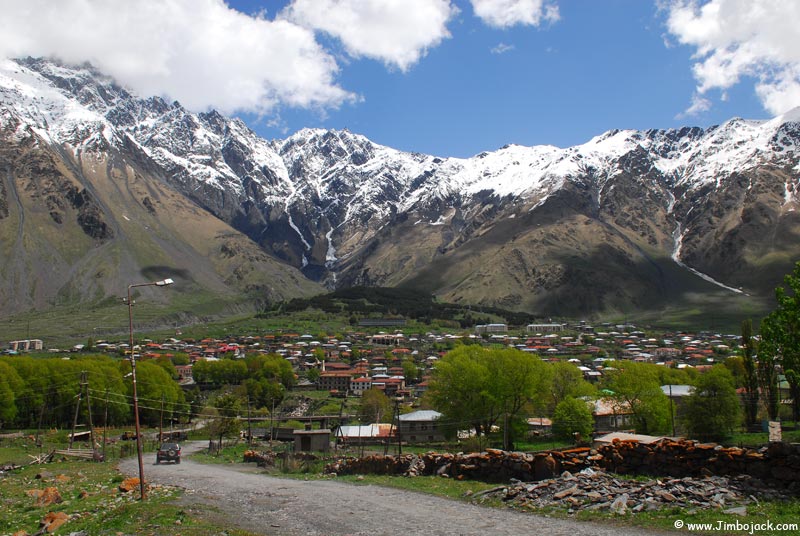
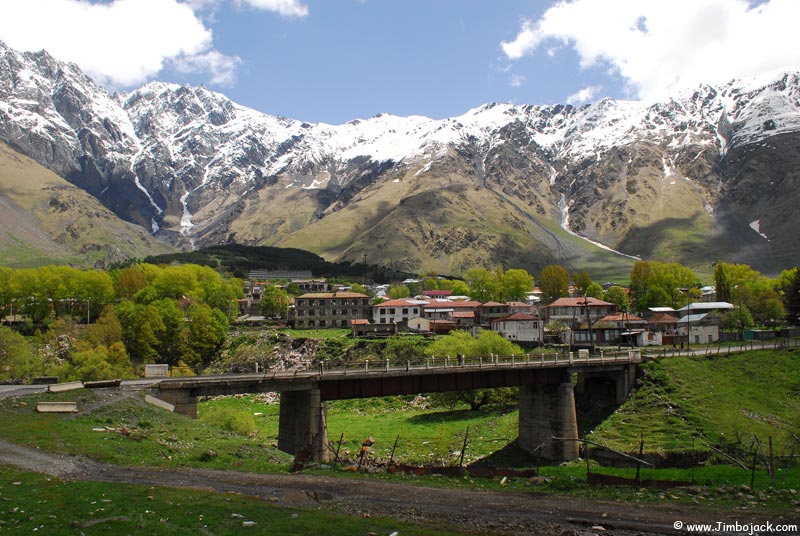
Alexander Kazbegi museum complex
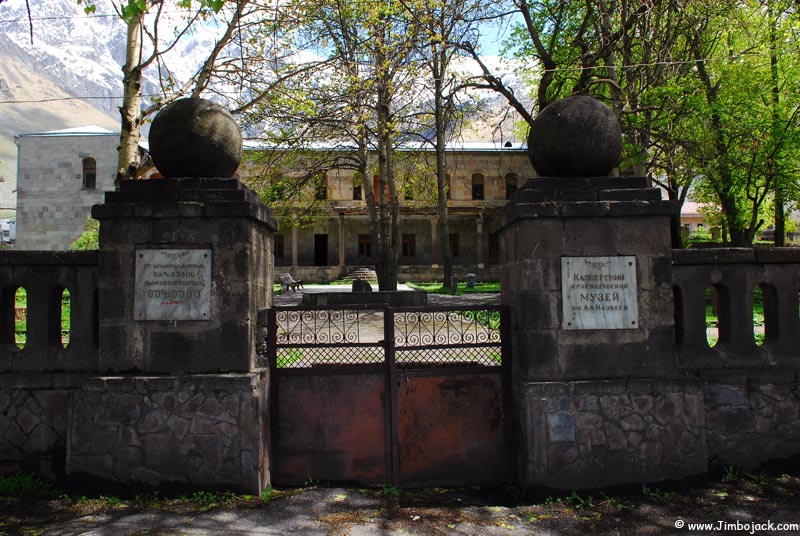
Church, built in 1809-1811. Alexander Kazbegi, his father and mother are buried nearby. The parents are buried under the bell towers, Alexander is buried is under a stone sculpture near the fence, he asked to be buried in a place from which he could see Mt. Kazbek.
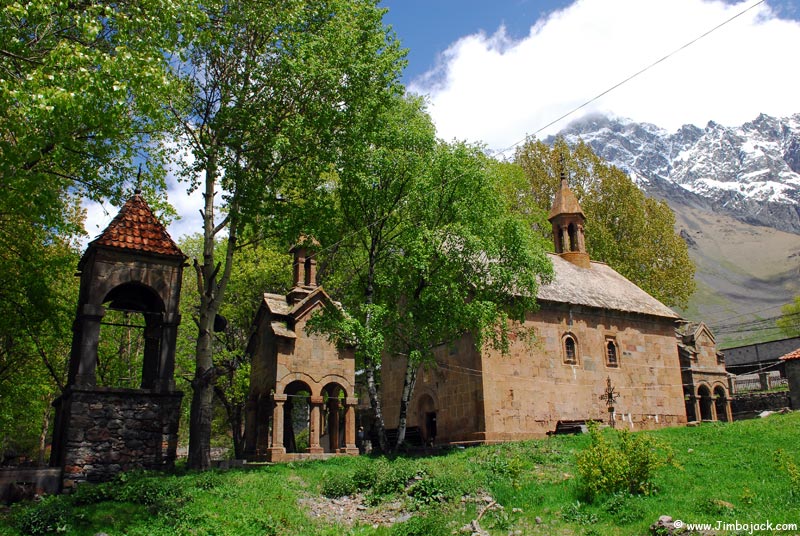
Inside of his former house, now housing the museum.
Typical 19th century furniture and tools used in the city
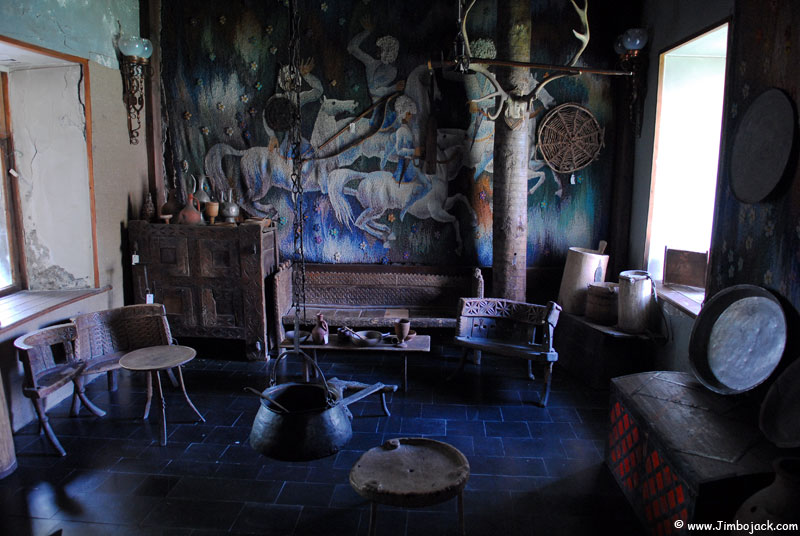
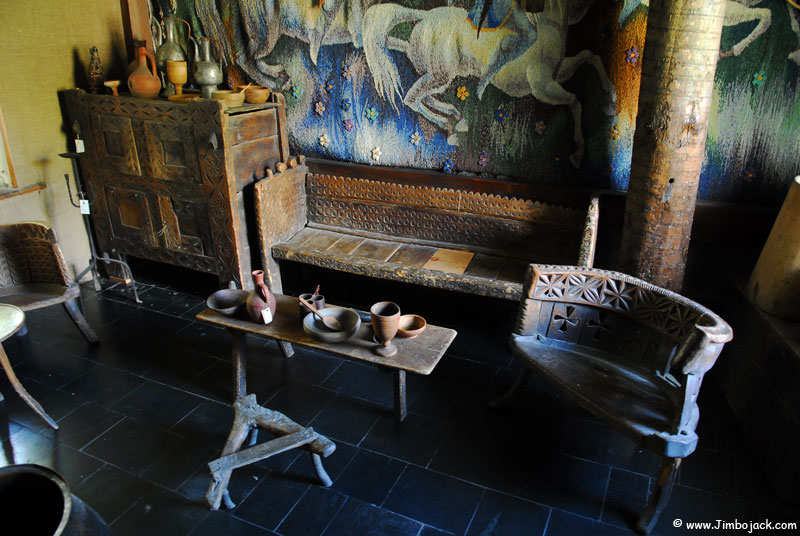
Portrait of Alexander Kazbegi. After studying in Tbilisi, Moscow and St. Petersburg, Alexander made the unusual decision to become a shepherd. After a while, he started working as a Journalist and wrote the plays and novels that made him famous. His most famous work, the novel The Patricide, is about a Caucasian bandit-hero named Koba. Koba, somewhat similar to Robin Hood, is a defender of the poor. Full of contempt for authority, a firm belief in vengeance (still common to some tribal peoples in the Georgian mountains) and a taste for violence, Koba was a major inspiration to another Georgian, Iosif Jughashvili. Better known as Joseph Stalin, Iosif used Koba as a revolutionary pseudonym for some time. I also visited the city of Gori, the birthplace of Stalin and the site of his museum where he still enjoys godlike status. But I will write about that a bit later...
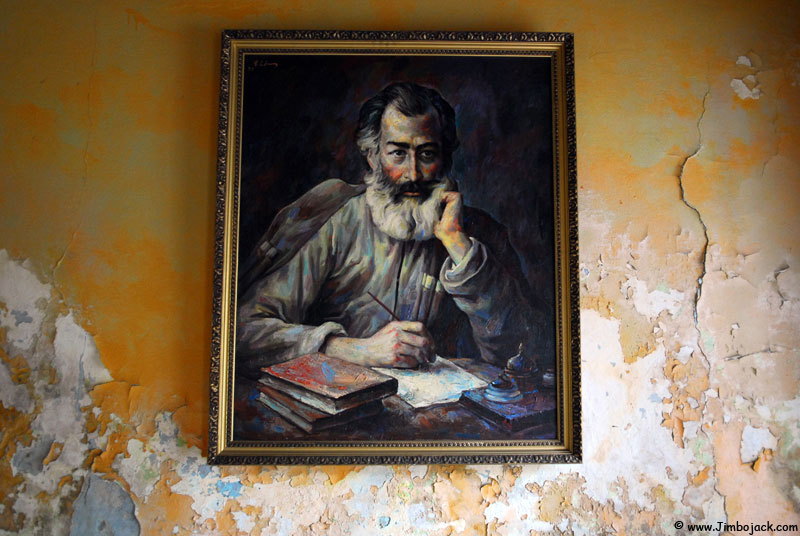
The following photos are form the hike up to Tsminda Sameba church
Small house along the trail
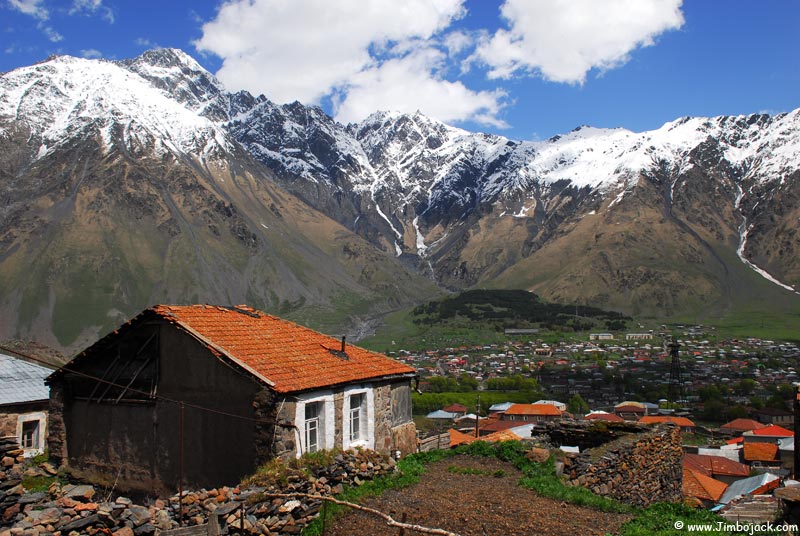
Local hillside cemetery
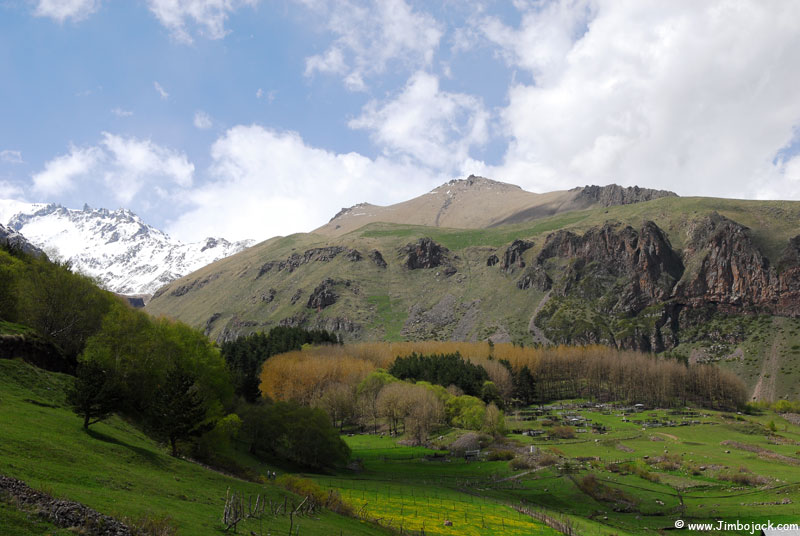
Trail
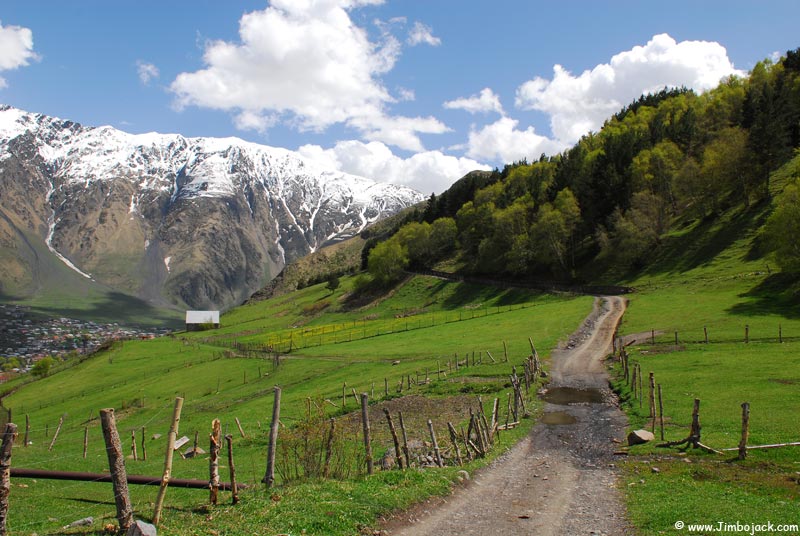
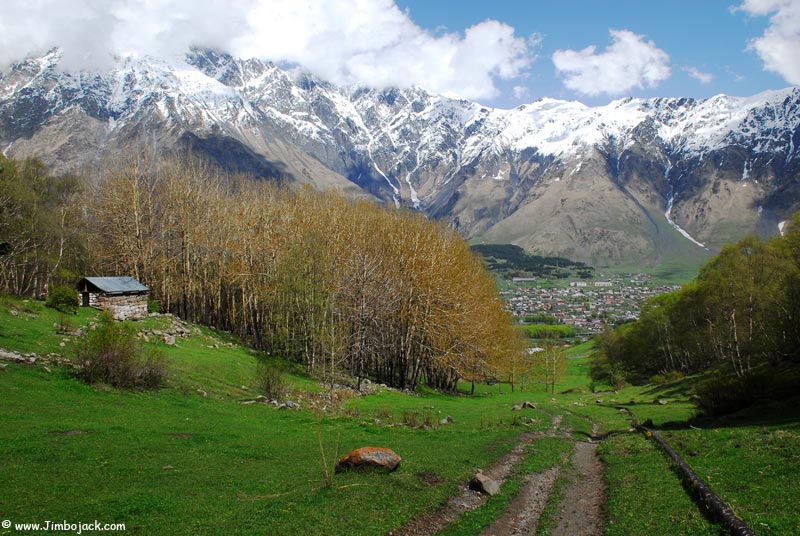
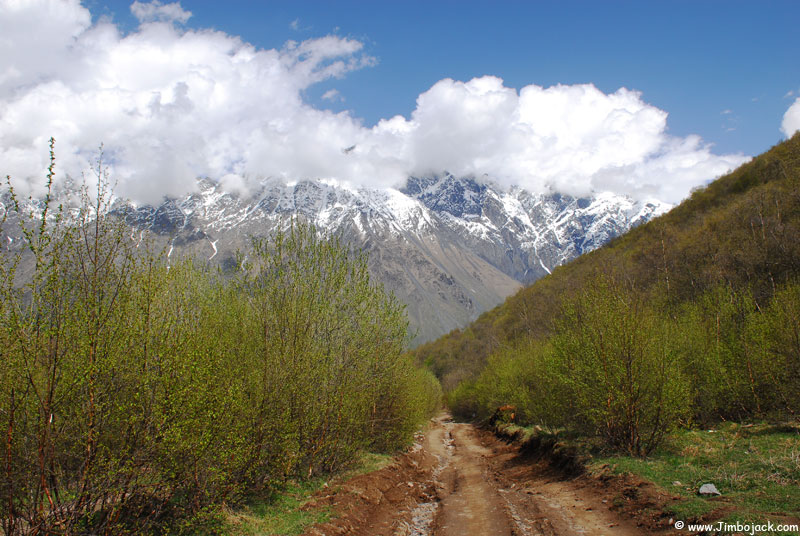
Tsminda Sameba church (also known as the Gergeti Trinity Church). Built in the 14th century, it is located at a height of 2,170 meters, above the town of Kazbegi and the village of Gergeti. In 1988 the Soviet government built a cable car line linking the church to Kazbegi. The locals felt this defiled their sacred place, and promptly destroyed it. During times of great danger, relics normally kept in Mtskheta (including St. Nino's cross) were brought here for safekeeping.
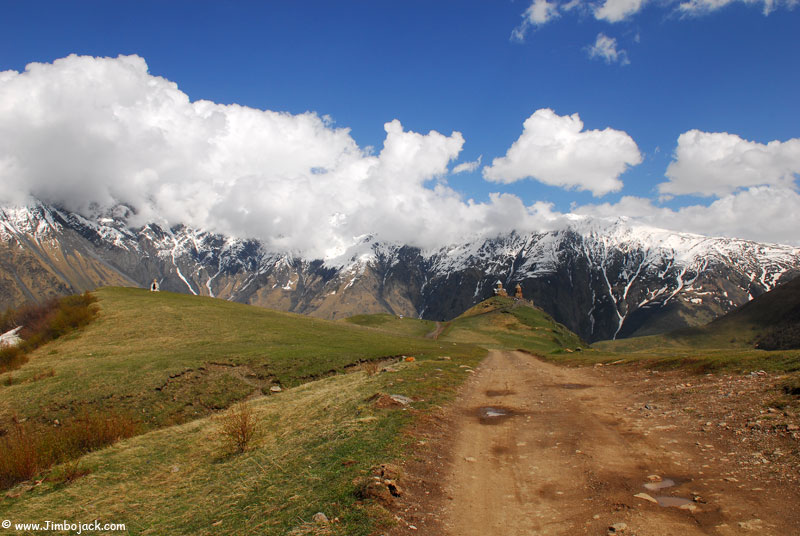
Small shrine
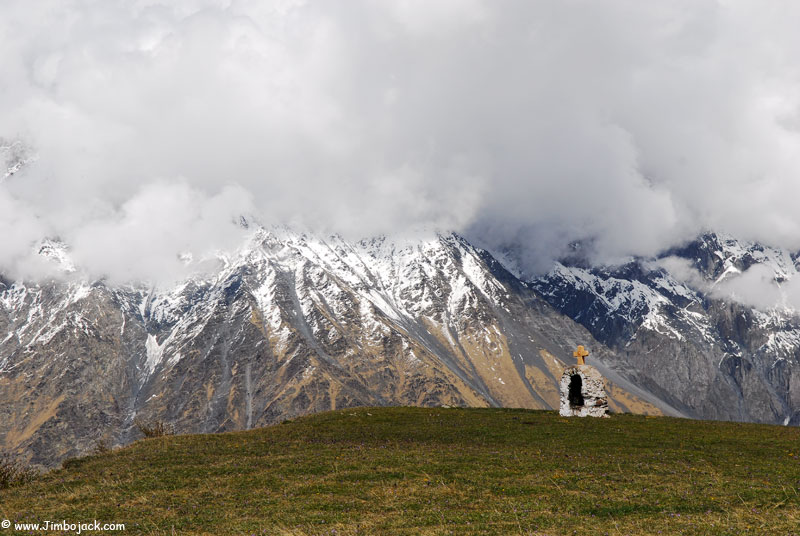
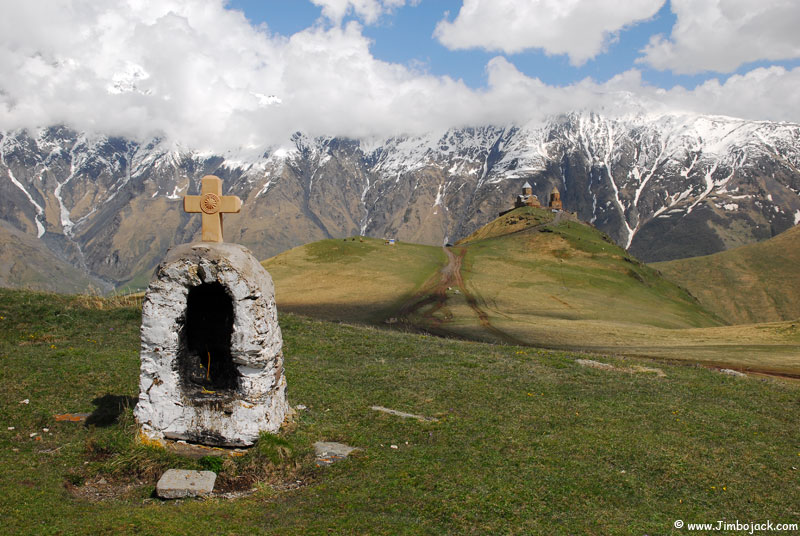
View of Kazbegi from the church
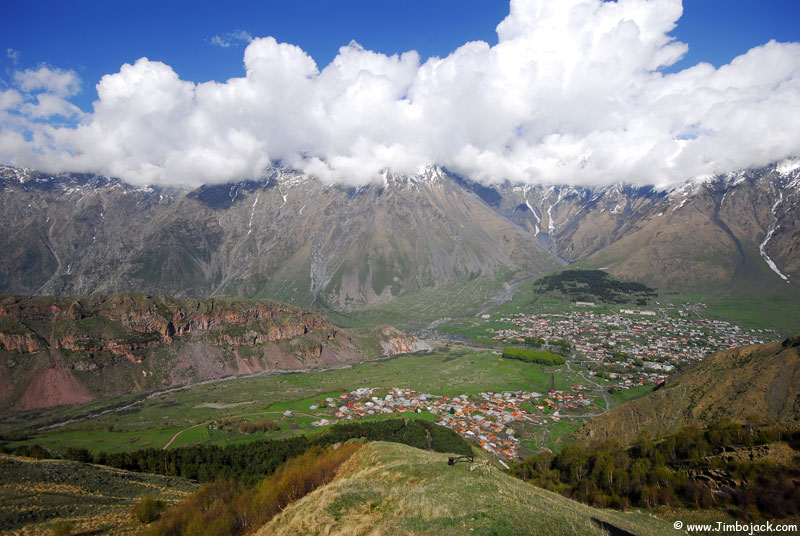
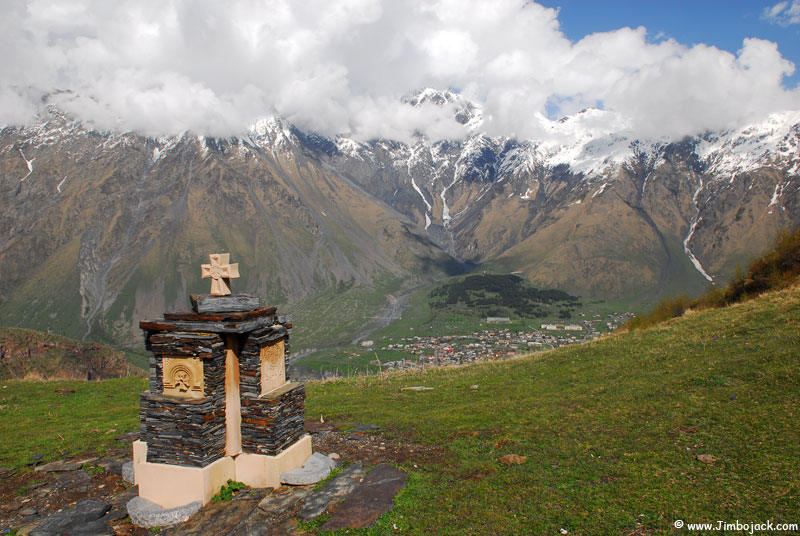
View of the 5,047 meter Mt. Kazbek
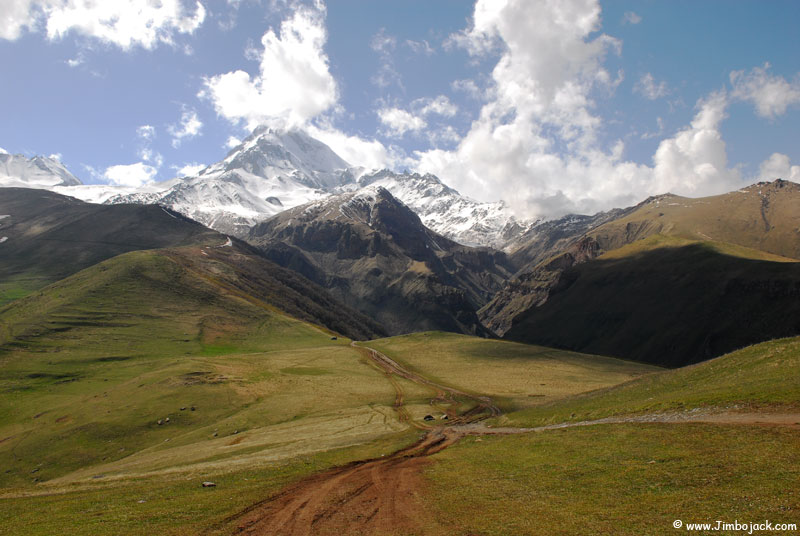
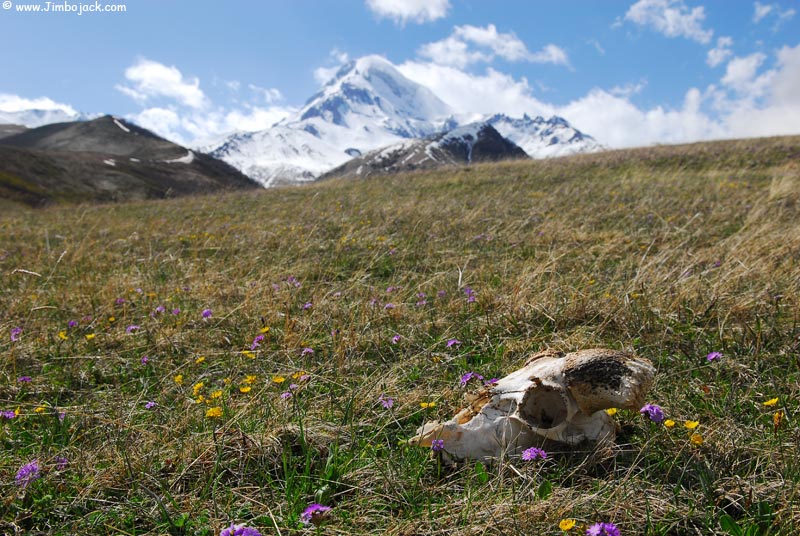
Tsminda Sameba church
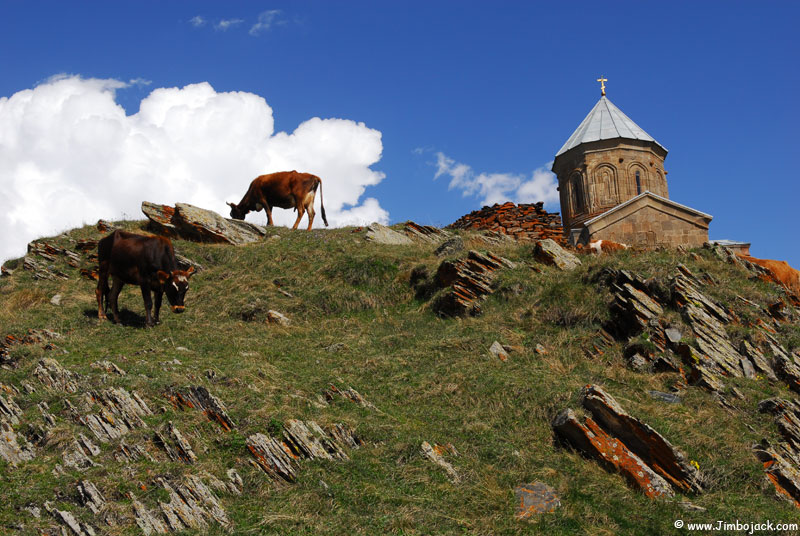
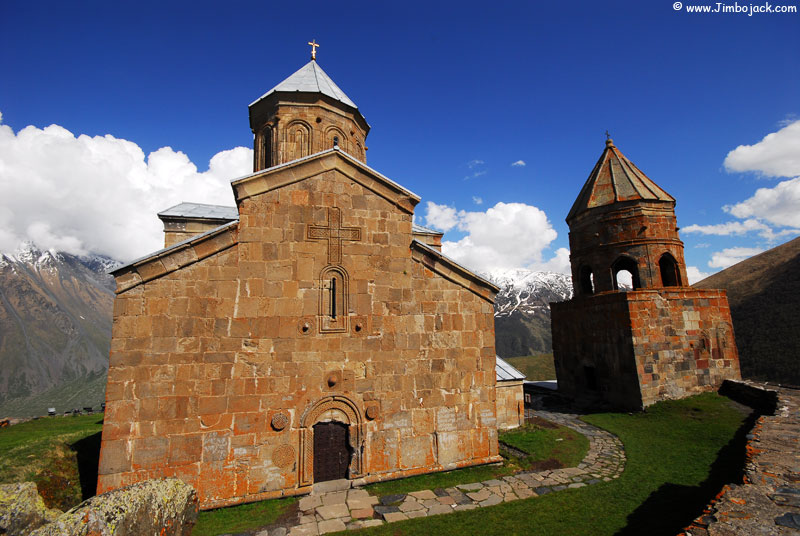
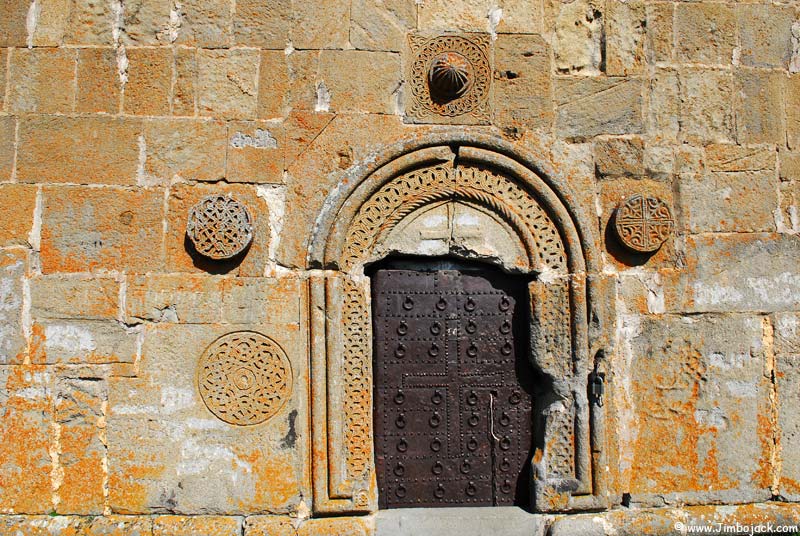
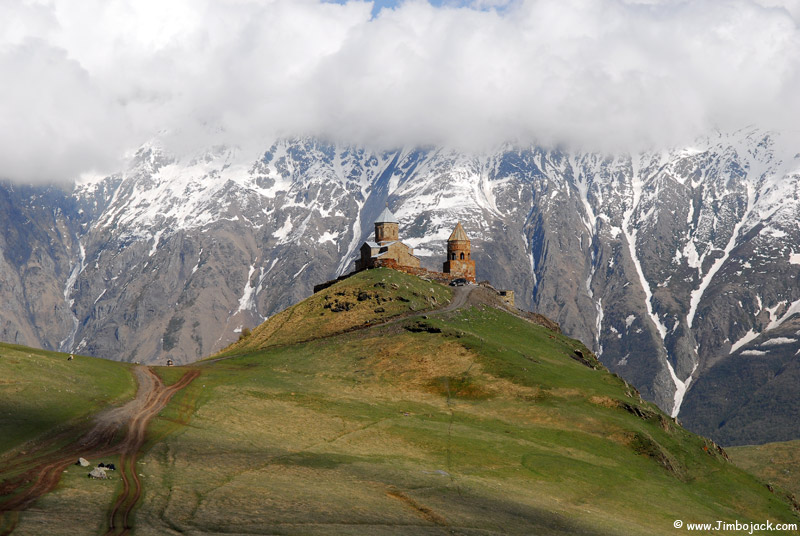
Coming back down to Kazbegi
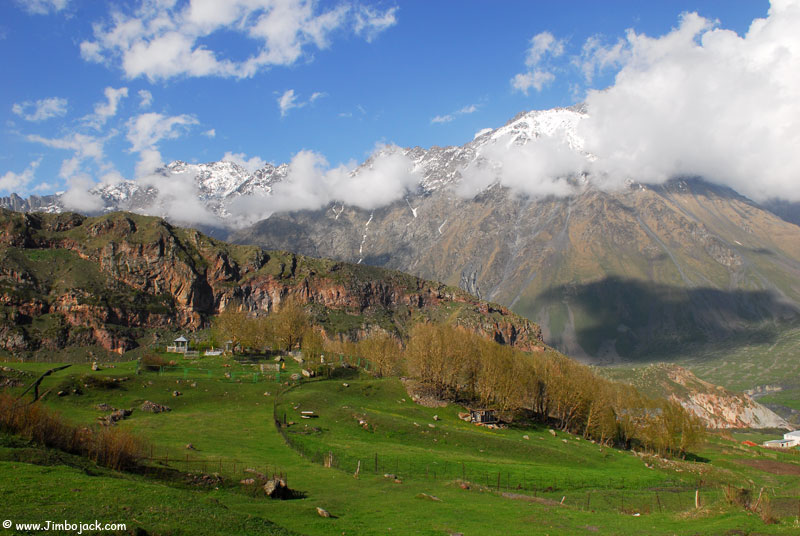
Another Georgian defense tower, this one is located in the village of Gergeti. The towers were designed in the 12th century as a fortified safe heaven for villagers during raids led by other mountain peoples (such as Chechens and Dagestanis). Originally the towers had many levels, people would occupy the top floor while the floors below them held food and water. The lower levels were sealed with stones so there were very difficult to enter from outside, a group of people could survive a 6-12 month siege in one of those towers. Today a lot of these towers remain in Georgia, many are in excellent condition. It is said that one reason that the towers can withstand centuries of bad weather, avalanches and attacks is that eggs were used as part of the cement mixture during their construction.
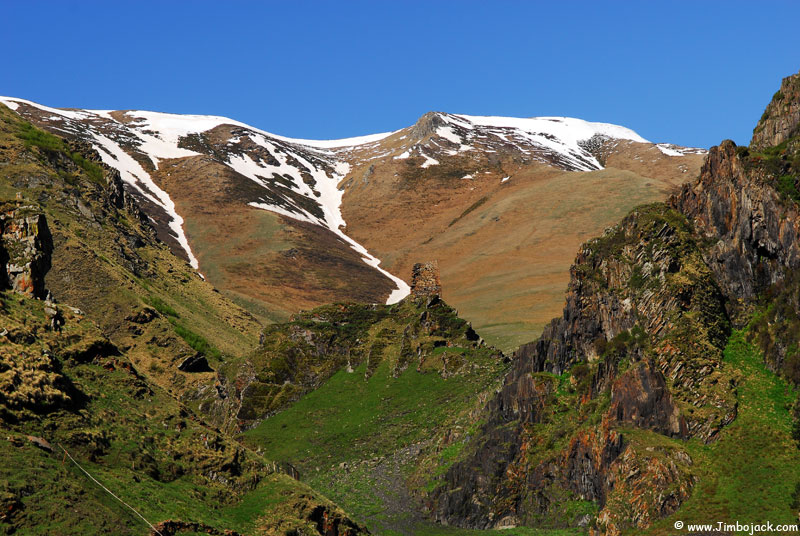
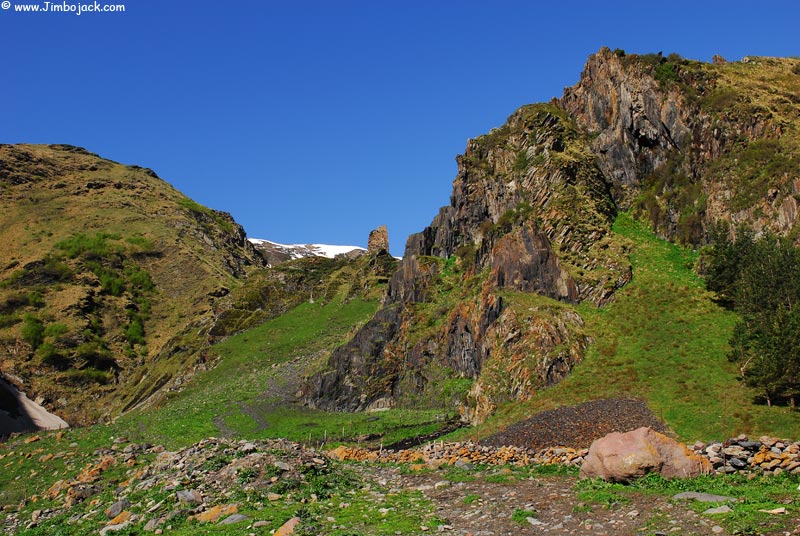
View of Mt. Kazbkek, the Tsminda Sameba church and the remains of the Soviet cable car station
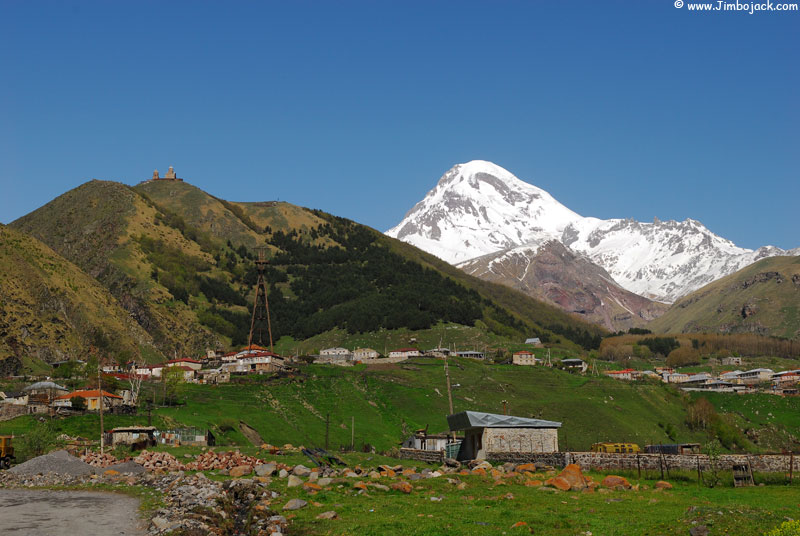
The man with whom I was staying offered to take me offroading to some waterfalls near the Darial Gorge as well as a couple of other small villages in the area.
Our Soviet Uaz jeep and the journey to Darial Gorge and the Russian border
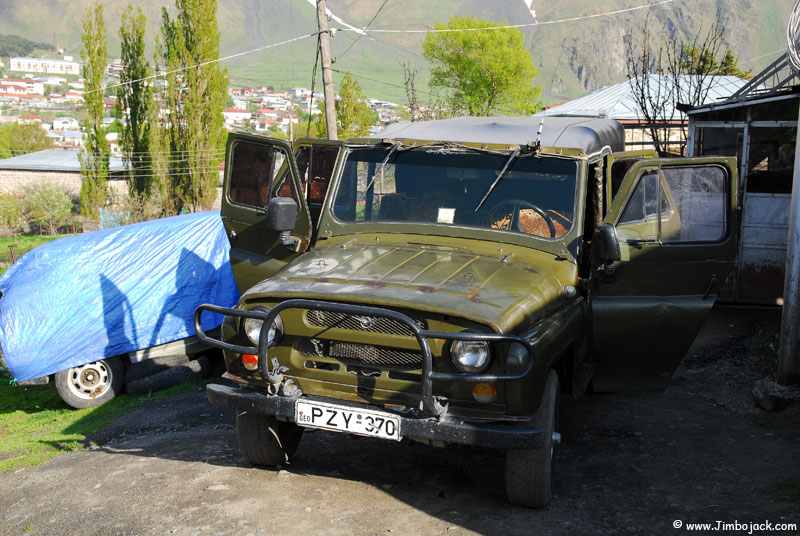
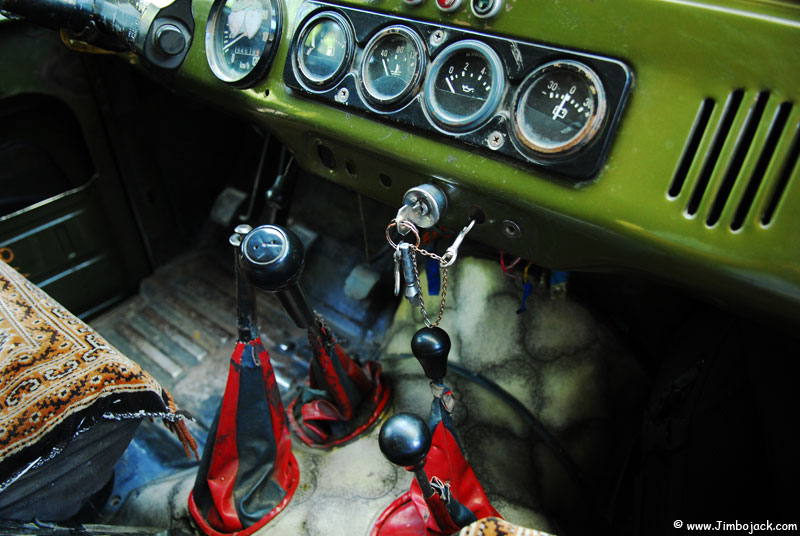
Filling up at the only gas station in the area
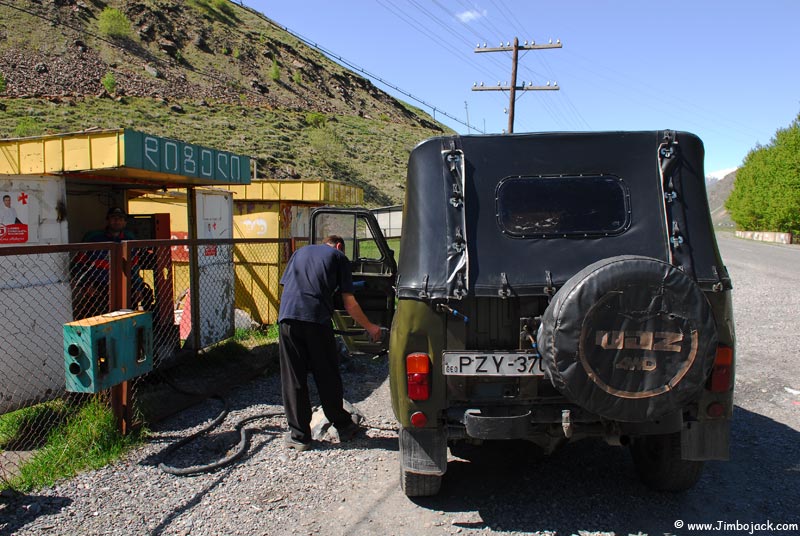
Darial Gorge
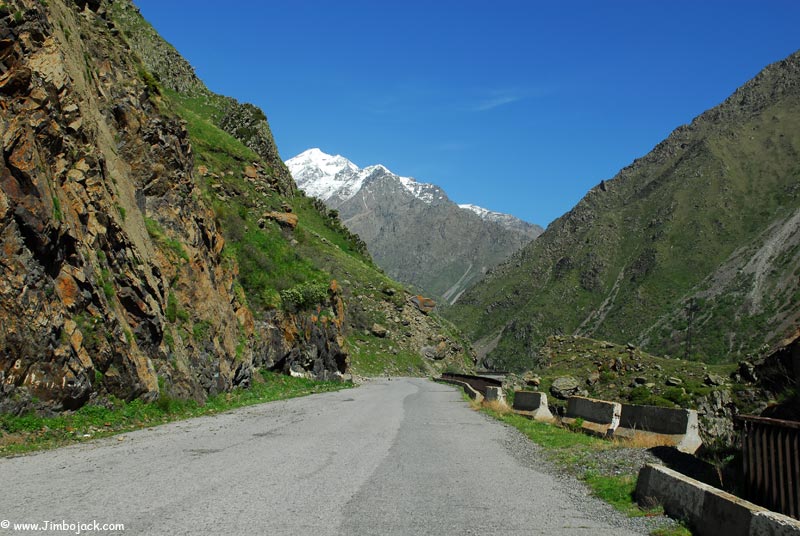
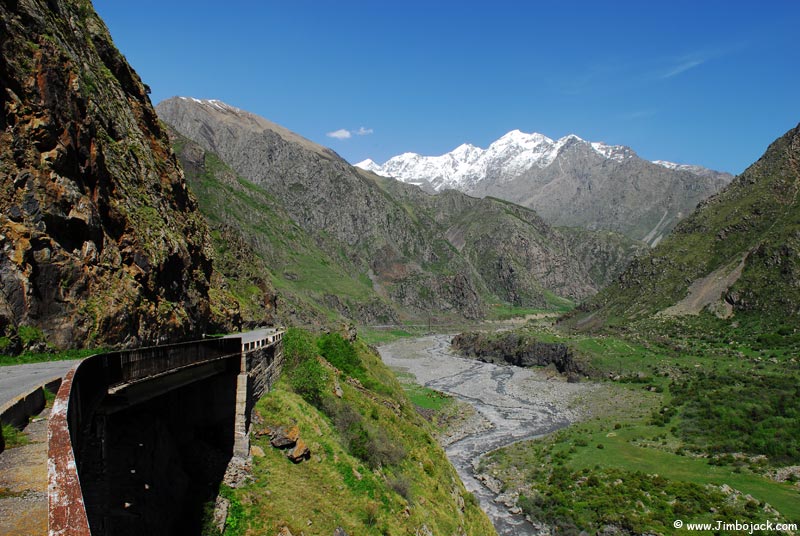
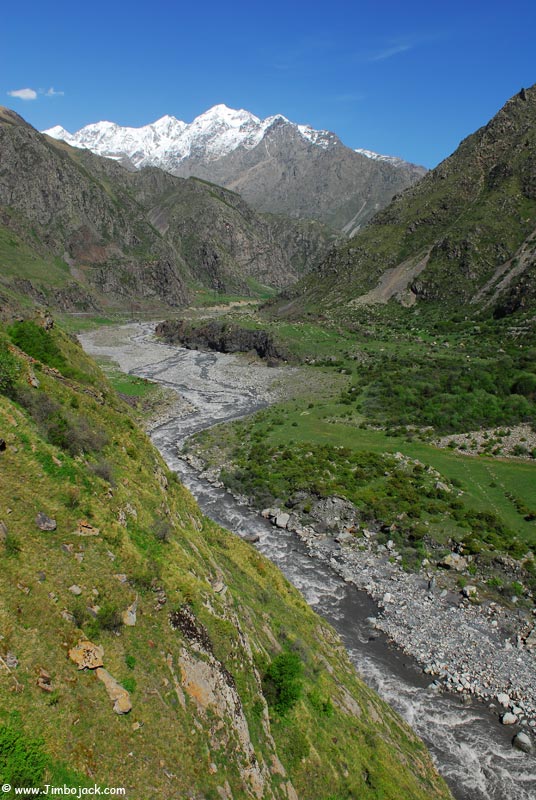
About 1-2 kilometers before the Russian border we turned onto a small, very rough road and continued up the mountainside. We parked the UAZ in a clearing and hiked up to a couple of waterfalls.
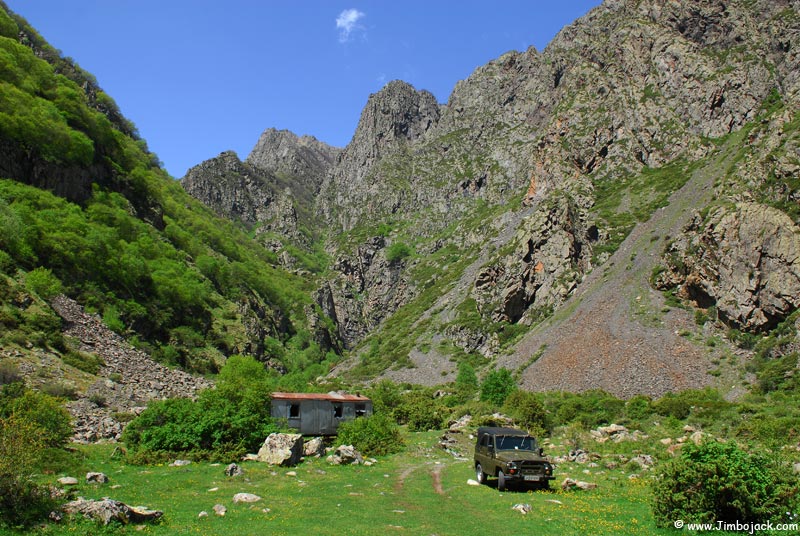
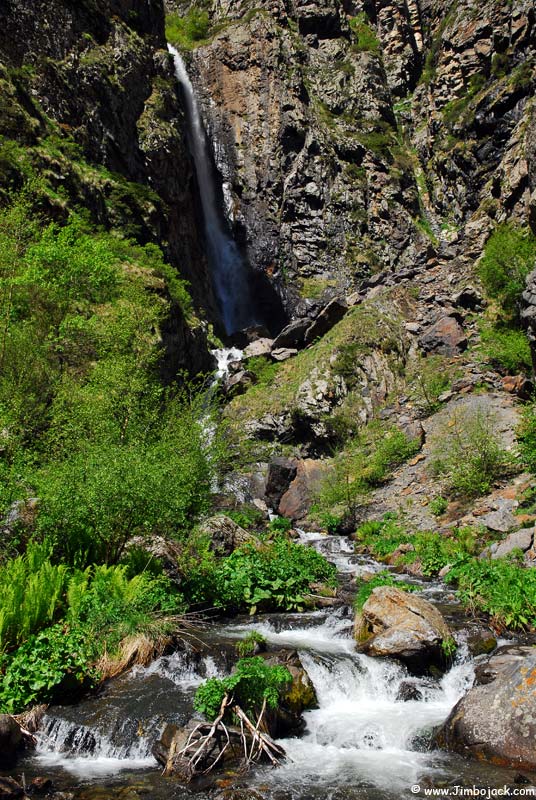
Another Georgian defense tower, this one is in the middle of a small village (Arsha).
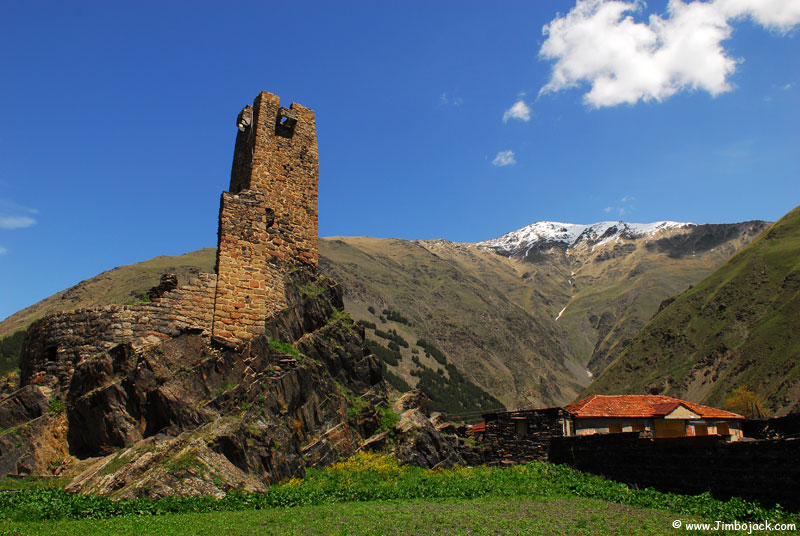
Local road
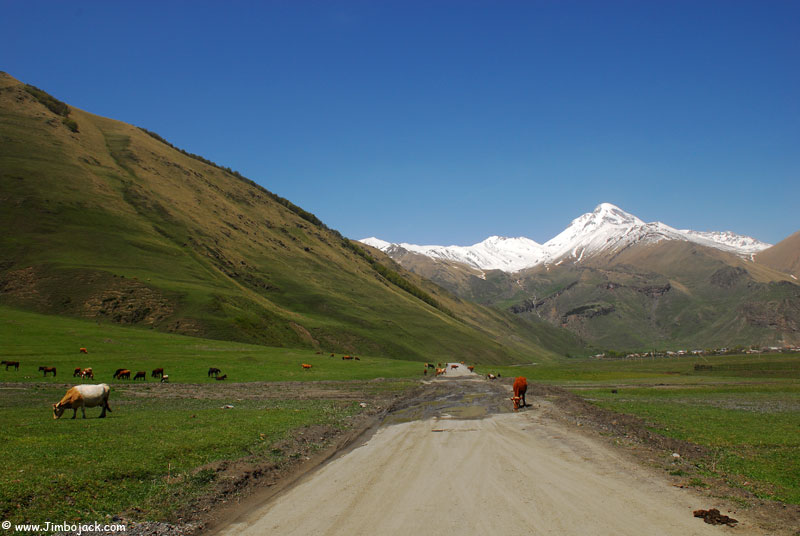
All of the animals here have a lot of space to roam around.
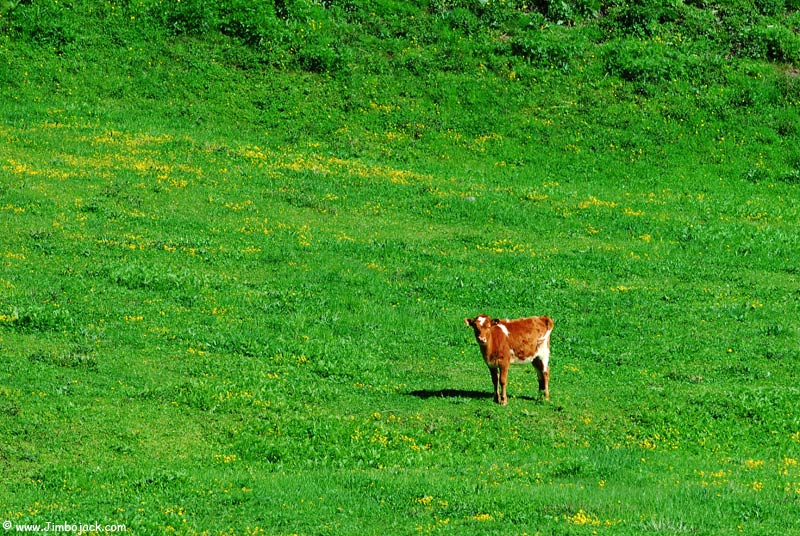
Mountains
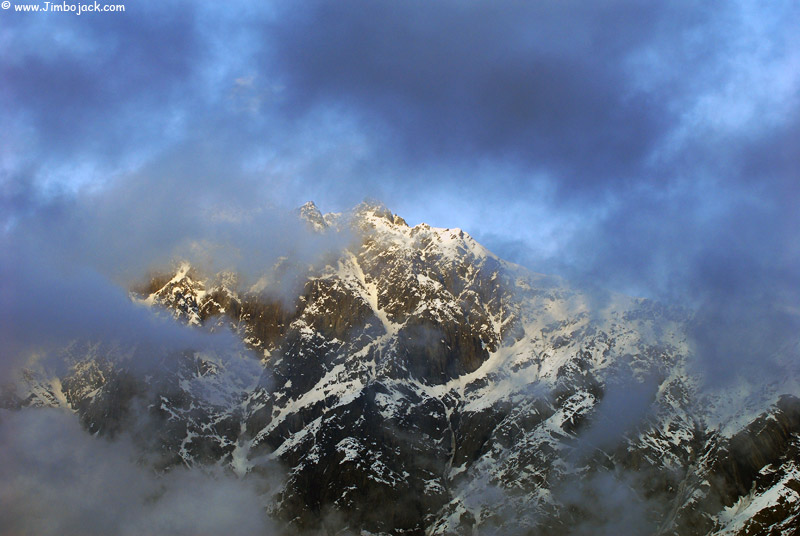
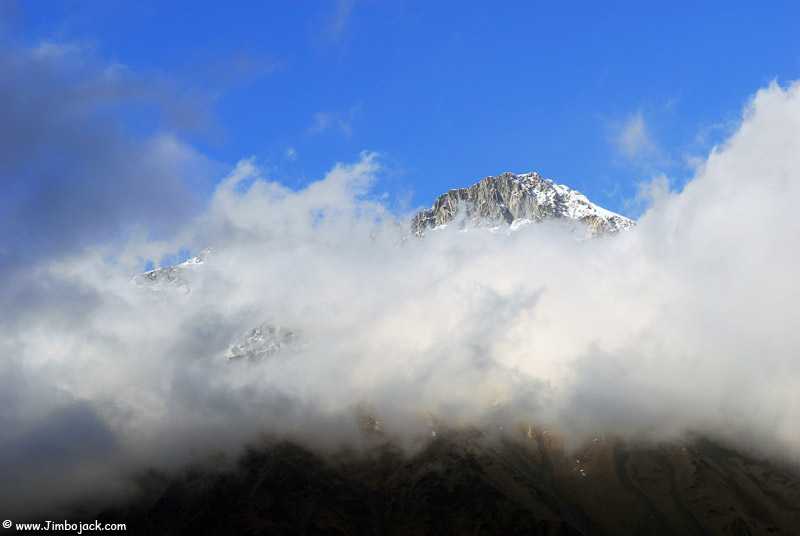
I bought this Russian juice from a small local shop, only after drinking it did I realize that it expired a year before. The photo of this family is a little freaky, this is the kind of nice family you meet in a horror movie right before things start to go wrong....

I hope you enjoyed these photos, I had a very hard time narrowing them down to an "acceptible" amount, if you want to see some additional ones (98 photos total) take a look at my pages here:
http://www.jimbojack.com/Caucasus_&_Europe.htm
I'll post another series from Georgia in the next few days
The original name of the city was Stepantsminda, it was named after a Georgian Orthodox monk who constructed a hermitage at this location. The semi-current name of the town (Kazbegi) comes from the the great-grandfather of Alexander Kazbegi, Kazibek Chopikashvili. He was charged with collecting tolls for passage through the area in the 18th century. During the 19th century, the Russian Empire expanded in the south Caucasus. The people living in the city (then known as Mtiuleti) allied themselves with other mountain peoples and revolted against the Russians. They demanded that Gabriel Chopikashvili (Kazibeks' son) hand over the resident Russian soldiers, he refused and was promoted to the position of General in the Russian army. Shortly afterwards the town was renamed Kazbegi.
After Georgia became independent following the break up of the Soviet Union, the name of the city changed back to the original name of Stepantsminda. Many people still know it as Kazbegi, so both names are commonly used.
The following pictures were taken through the window of my Marshrutka (minivan/taxi) on the way from Tbilisi to Kazbegi
Roadblock

Roadside scenery


Sheep and cattle grazing on the mountainside, look for the dots

Georgian defense tower, barely visible. More about these towers below

More roadside scenery


Another defense tower

Coming down towards kazbegi




Old Georgian Military highway checkpoint

Kazbegi
Once my Marshrutka stopped in the town square, a man approached me and offered me a homestay with his family (A lot of people here do not speak Georgian, they only speak Russian). I understood enough to figure out what he was saying, we agreed on a price (Around $12 a night including VERY good homemade meals prepared by his wife) and off we went in his old Uaz jeep.
My room in the house

The town of Kazbegi


Alexander Kazbegi museum complex

Church, built in 1809-1811. Alexander Kazbegi, his father and mother are buried nearby. The parents are buried under the bell towers, Alexander is buried is under a stone sculpture near the fence, he asked to be buried in a place from which he could see Mt. Kazbek.

Inside of his former house, now housing the museum.
Typical 19th century furniture and tools used in the city


Portrait of Alexander Kazbegi. After studying in Tbilisi, Moscow and St. Petersburg, Alexander made the unusual decision to become a shepherd. After a while, he started working as a Journalist and wrote the plays and novels that made him famous. His most famous work, the novel The Patricide, is about a Caucasian bandit-hero named Koba. Koba, somewhat similar to Robin Hood, is a defender of the poor. Full of contempt for authority, a firm belief in vengeance (still common to some tribal peoples in the Georgian mountains) and a taste for violence, Koba was a major inspiration to another Georgian, Iosif Jughashvili. Better known as Joseph Stalin, Iosif used Koba as a revolutionary pseudonym for some time. I also visited the city of Gori, the birthplace of Stalin and the site of his museum where he still enjoys godlike status. But I will write about that a bit later...

The following photos are form the hike up to Tsminda Sameba church
Small house along the trail

Local hillside cemetery

Trail



Tsminda Sameba church (also known as the Gergeti Trinity Church). Built in the 14th century, it is located at a height of 2,170 meters, above the town of Kazbegi and the village of Gergeti. In 1988 the Soviet government built a cable car line linking the church to Kazbegi. The locals felt this defiled their sacred place, and promptly destroyed it. During times of great danger, relics normally kept in Mtskheta (including St. Nino's cross) were brought here for safekeeping.

Small shrine


View of Kazbegi from the church


View of the 5,047 meter Mt. Kazbek


Tsminda Sameba church




Coming back down to Kazbegi

Another Georgian defense tower, this one is located in the village of Gergeti. The towers were designed in the 12th century as a fortified safe heaven for villagers during raids led by other mountain peoples (such as Chechens and Dagestanis). Originally the towers had many levels, people would occupy the top floor while the floors below them held food and water. The lower levels were sealed with stones so there were very difficult to enter from outside, a group of people could survive a 6-12 month siege in one of those towers. Today a lot of these towers remain in Georgia, many are in excellent condition. It is said that one reason that the towers can withstand centuries of bad weather, avalanches and attacks is that eggs were used as part of the cement mixture during their construction.


View of Mt. Kazbkek, the Tsminda Sameba church and the remains of the Soviet cable car station

The man with whom I was staying offered to take me offroading to some waterfalls near the Darial Gorge as well as a couple of other small villages in the area.
Our Soviet Uaz jeep and the journey to Darial Gorge and the Russian border


Filling up at the only gas station in the area

Darial Gorge



About 1-2 kilometers before the Russian border we turned onto a small, very rough road and continued up the mountainside. We parked the UAZ in a clearing and hiked up to a couple of waterfalls.


Another Georgian defense tower, this one is in the middle of a small village (Arsha).

Local road

All of the animals here have a lot of space to roam around.

Mountains


I bought this Russian juice from a small local shop, only after drinking it did I realize that it expired a year before. The photo of this family is a little freaky, this is the kind of nice family you meet in a horror movie right before things start to go wrong....

I hope you enjoyed these photos, I had a very hard time narrowing them down to an "acceptible" amount, if you want to see some additional ones (98 photos total) take a look at my pages here:
http://www.jimbojack.com/Caucasus_&_Europe.htm
I'll post another series from Georgia in the next few days
Phillip
Just back from Europe, Eastern Turkey, Iraq and Iran, new photos coming soon!
Over 100 Countries, thousands of pictures, one Website (being redesigned at the moment)
www.Jimbojack.com
Just back from Europe, Eastern Turkey, Iraq and Iran, new photos coming soon!
Over 100 Countries, thousands of pictures, one Website (being redesigned at the moment)
www.Jimbojack.com
0
Comments
That road block... is a real road block!
www.tednghiem.com